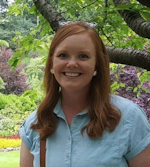Preparing for dental hygiene school: Questions to ask that will help you be ready
Two years ago, I received my acceptance letter into dental hygiene school. My husband and I celebrated by going to dinner, purchasing my white flashy clinic shoes, and calling family to share the good news. Now, two years later, I have graduated and am anticipating receiving my license.
Upon opening my acceptance packet, I was thrilled to soak up the information that my program gave me and quickly made work on the “to do” list that they had included. As the days for our program orientation day approached, I felt mentally prepared to take on this new adventure.
Orientation day came and I learned information that would have been helpful to know as my husband and I prepared for my participation in the program. School was starting the very next week and we had to scramble to make some last-minute adjustments to our schedule, finances, and routine. I wished I had known this information sooner so I could have adequately made my mental and physical preparations in time for school to begin. The faculty of my program had given all of us plenty of information ahead of time, but there were a few questions that I wish I had asked long before the program started.
Dental hygienists are organized people. We must be in order to succeed in this ever-changing and competitive field! This article is meant to prepare (not discourage) future dental hygiene students for a successful start in their respective programs by recommending questions that can be asked that will be helpful in the weeks and months leading up to the start of their program. This article may also provide some valuable insights for faculty as they consider how to better help the incoming cohorts to have a less stressful transition into dental hygiene school.
What time am I expected to be at school on class and clinic days? What time will I likely leave?
I have always been a morning person, but I was surprised to learn that I was expected to be at school by 7 AM on most clinic days. Along with getting ready, making my lunch, and my commute, this meant I would have to get up at 5:30. This is valuable information for anyone who will be commuting to school, has children or pets, has regular work schedules, or who relies on public transportation. Additionally, one semester we were in lecture until 7 PM. Every program is different, so make sure you ask about your specific program.
How much money should I be prepared to spend? Am I responsible to pay for my own PPE or are those supplies included in the cost of my tuition?
Dental hygiene school is expensive. Paying for instruments, tuition, uniforms, examinations, etc. requires planning. It is important to be prepared with a plan or method to pay for these items with cash, financial aid, or student loans. Most schools are likely transparent with most of the big-ticket items, but there may be several smaller expenses that they forget to tell you. Do not be afraid to ask.
What are the first six weeks of the program going to be like? What can I anticipate the workload being like at the start of the program?
The first couple of months of the program were an absolute whirlwind. The coursework was unlike anything I had ever done before, and learning instrumentation was harder than I had anticipated. I did not realize that the first six weeks of the program would be so challenging and time-consuming outside of class. This would have been helpful to know as I tried to adjust my work and social schedule prior to school starting. In my experience, an assignment that a professor thought would take only 30 minutes often took my classmates and me significantly longer—especially at the start of the program because of new material, learning to navigate computer software, and figuring out formatting, style, and submission preferences for each professor.
Can I get the contact information for a recent graduate or a senior student so I can get their perspective and advice?
Most dental hygiene schools assign each student with a “big sister” or “big brother” who can also be a valuable resource for information, but they are often not assigned until the end of orientation or the start of the program. Asking for the contact information of a former or current student is a great idea to get a student’s perspective on the demands of a class or program long before school starts. As a recent graduate, I would be happy to share my insights with an incoming student so they could be more ready than I was to take on the challenges and rigors of my program.
Chin up!
I still recall the shock I felt as I started dental hygiene school. It was stressful and exhausting. There were tears, late-night study sessions, injustices, gossip, and moments when I wanted to quit. Now that I am done, I look back and see how much I have grown. Do not let these suggestions scare you, but instead let them prepare you to have a smoother transition into your program. Remember, keep your chin up. It is all worth it.
Rebecca “Becca” Neilson, BS, RDH, grew up in Provo, Utah. She graduated from Brigham Young University in 2014 with a bachelor of science in biology, and Indiana University South Bend in 2020 with a bachelor of science in dental hygiene. She is happily married and lives in Elkhart, Indiana. Becca’s long-time hobby is arranging flowers, and she currently works as a florist. She thrives off interpersonal relationships and finds satisfaction in helping others learn. You can reach her at [email protected].







